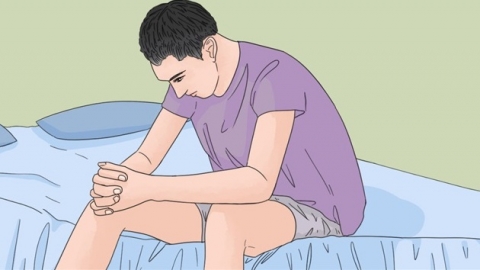How to treat premature ejaculation
Generally, premature ejaculation may be related to genetic factors, unhealthy lifestyle habits, prostatitis, anxiety, diabetes, and other factors. It can be treated or relieved with general treatments, medications, and other approaches depending on the specific situation. It is recommended to seek timely medical advice to identify the cause and receive appropriate treatment under a doctor's guidance. A detailed analysis is as follows:

1. Genetic factors: Some patients with premature ejaculation may be influenced by genetics, leading to individual differences in sexual function. Symptoms of premature ejaculation can be alleviated by adjusting diet, increasing physical exercise, and improving psychological status.
2. Unhealthy lifestyle habits: Long-term熬夜, excessive fatigue, and an unbalanced diet can lead to a decline in bodily functions and affect sexual performance. It is recommended to adjust lifestyle habits, maintain a regular schedule, and increase physical activity.
3. Prostatitis: This may be associated with irregular sexual activity, prolonged sitting, and other factors, which can compress surrounding blood vessels and nerves, leading to premature ejaculation accompanied by symptoms such as frequent urination and urgency. Patients can take medications such as levofloxacin tablets, ciprofloxacin hydrochloride tablets, or amoxicillin tablets under a doctor's guidance.
4. Anxiety: This may be related to high mental stress and other factors, which can affect the brain regions controlling sexual response, lowering the threshold for sexual excitement and leading to premature ejaculation, accompanied by worry and unease. Patients can take medications such as compound diazepam tablets, estazolam tablets, or alprazolam tablets under a doctor's guidance.
5. Diabetes: The primary causes may include genetic and unhealthy lifestyle factors, leading to vascular and nerve damage, which can cause premature ejaculation, possibly accompanied by symptoms such as increased thirst and frequent urination. Patients can take medications such as acarbose capsules, glimepiride tablets, or gliquidone tablets under a doctor's guidance.
In daily life, it is important to ensure adequate sleep, avoid excessive fatigue, and consume more fresh vegetables and fruits such as cabbage, apples, and tomatoes, which may help improve sexual function.





